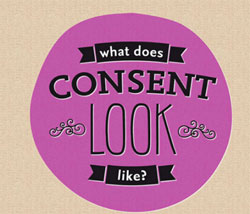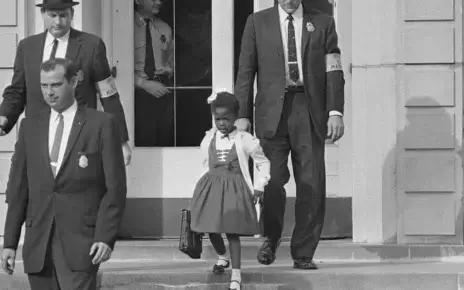A study conducted by Monmouth University’s Jennifer McGovern, assistant professor of political science and sociology, and Patrick Murray, Director of the Polling Institute found that athletes, both male and female, are more likely to misperceive consent for sex compared to non-athlete students.
The study was designed to research sexual assault prevention strategies that would be specifically tailored to student athletes. McGovern and Murray’s research determined that, without taking athleticism into account, male students are more likely to perceive when consent is being given when compared to female students. However, both male and female athletes are more likely to misperceive consent than non-athlete students.
McGovern, has a focus in understanding how sport both reflects and challenges social inequalities, including social class, race, ethnicity, gender, nationality, and sexuality.
“One of the reasons we wanted to do this on student athletes was because obviously this topic is big in the news in general, and it’s something that’s affecting many campuses, but in particular, it has affected student athletes, or at least there’s a thought that it’s male student athletes, in a sense, being troublemakers and perpetrators,” said McGovern.
“We wanted to try to find more ways to educate student athletes about the issues. It wasn’t that we didn’t care about educating all students at Monmouth, it was that the NCAA offered a grant, and they said ‘we want you to do some research that looks at the needs of student athletes.’ It was a pressing issue, and we here at Monmouth wanted it to be something that student athletes were more educated on.”
The study surveyed 923 Monmouth University students. 118 were male athletes, 133 were female athletes, 193 were male non-athletes, and 479 were female non-athletes. According to the study, students were surveyed by being broken down first by gender and then by athlete status. They were then broken down further.
Seven group discussions were held. Four were with male students (broken into groups of football players, other team sports players, individual sports players, and non-athletes), and three were with women (broken into team sports players, individual sports players, and non-athletes. The focus group involved prompted discussion about how sexual consent is communicated, responses to a scenario involving two students, and reactions to online sexual assault training materials.
The results of the study will be used to create new programming for students, especially athletes, on campus. While no programming has been planned yet, as McGovern and Murray have yet to present their results to Monmouth’s athletic department, some planning has already begun. Focus groups found that a variety of programming was needed, since that is the most effective form of delivery, especially for male athletes. McGovern also believes that not enough is done to make sure that students properly understand consent.
The athletic department at the University has spent time in the past addressing the issue of educating student athletes. “We spend a lot of time talking to our student athletes and our coaches about respect for all – our coaches talk to our student athletes about sexual assault and respecting all people,” said Dr. Marilyn McNeil, Vice President and Director of Athletics. “We have had speakers in the past, and we encourage all of our student athletes to attend the general university sessions. The Rutgers skit is a mandatory event for our freshmen students, if they do not have class. We have worked directly with Equity and Diversity on ways to educate our coaches and student-athletes.”
“I really hope that we can use [the research] to create programs, or to find programs, that are going to be more effective in school,” said McGovern. “I think a lot of people think there’s a magic bullet, and there’s one way to teach people about this. But through our research, through everything we’ve done – honestly, there’s no magic bullet.
“There’s no cure-alls, there’s no one thing that’ll reach everyone, partially because men and women are different, thinking about it differently, they are socialized differently, there are different consequences for them – so one of the things we found that really seems to help is repetition and variety, hearing the message a number of times and a number of different ways, so we’re hoping that we can communicate that, both the athletic department and the school, that it’s not enough to have one program at orientation and call it a day,” said McGovern.
McNeil was one of the original group members when the University decided to start this research. She explained the benefits of conducting this research. “We are continuing and will continue the discussion on the best ways to impart information. I think that might have been one of the most interesting conclusions of the research….that some of the standard ways of educating students, may not be the best way to reach them. The research will really help us do a better job of education,” said McNeil.
McGovern also pointed out that men and women answered the questions concerning consent very differently. Students were asked questions regarding consent and sexual encounters in a variety of ways – such as what they would consider signals for consent and what they would do as a bystander to a potential sexual assault involving the teammate as the perpetrator. Both male and female athletes were more likely than the average student to misperceive consent.
“Because hegemonic masculinity is so much the culture of sport, I’m not entirely surprised that, like in other contexts where there are norms and values and beliefs about masculinity and femininity that tend to give privilege to men in the interactions, and assign to men in part the rights to sexual access to women, that in those kinds of cultural contexts, that a sense of men’s entitlement to access to women doesn’t surprise me,” said Johanna Foster, an associate professor and the director of both the gender studies and sociology programs at Monmouth.
“To the extent that women are in the culture of sport, a culture that has hypermasculinity as a key cultural characteristic, it wouldn’t surprise me that women have internalized those messages about consent,” Foster continued.
The study supported this belief, finding that female athlete students are more likely to misunderstand consent than female non-athlete students. According to the study, sports culture plays a role in female athletes’ misunderstanding of consent, suggesting that women with strong self-images (a description that often applies to female athletes) are more likely to buy into the idea that other women give “mixed signals”.
The study was commissioned by the National College Athletics Association (NCAA). Monmouth was one of six schools that were awarded a 2015 NCAA Innovations and Research and Practice Grant. The grant is meant for projects designed to enhance student-athlete well-being.
IMAGE TAKEN from vitaminw.com




